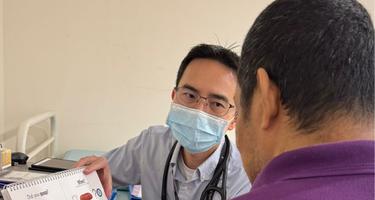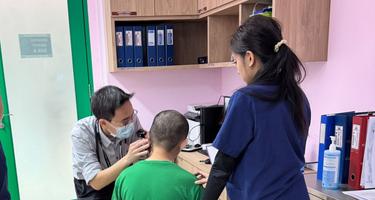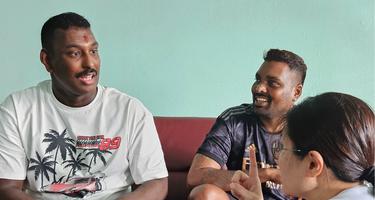Module 2: Healthcare for Persons with Intellectual Disabilities - Impact of ID on Health
Singapore University of Social Sciences (SUSS)
About this course
This course is jointly developed between SUSS and Happee Hearts Movement.
The course on Healthcare for Persons with Intellectual Disabilities - Impact of ID on Health provides a comprehensive overview of key health considerations for individuals with intellectual disabilities (ID). Participants will learn to describe common health conditions associated with ID and identify important areas requiring health assessment. The course also introduces both the social and biomedical models of health, highlighting their relevance in understanding and supporting individuals with ID. Learners will explore behaviours of concern (BOC) and examine the influence of social determinants of health in clinical decision-making and the provision of care. By the end of the course, you will have a deeper understanding of the multifaceted factors affecting health outcomes in this population.
This course is part of the Healthcare for Persons with Intellectual Disabilities series, which consists of six courses. For the best learning experience, we recommend completing the courses in sequence.
Course Accreditation
This module is accredited for 1 CME points for doctors (1 Core point for Family Medicine practitioners, 1 Non-core point for other doctors). Learners are to submit their Certificate of Participation to Singapore Medical Council (SMC) under Category 3B for CME point accreditation.
Participants who have completed the graded quizzes and obtained a passing score of 80% will be eligible for Certificate of Participation. The download link to the Certificate will be available under the Progress Tab in the course site.
Course Access Period
Please note that this is an online self-paced asynchronous course where learners will be granted 1 month of access from the enrolment date.
What you will learn
On completion of this course, you will be able to:
- List common health conditions associated with ID.
- Identify all relevant areas of health that may require assessment in a person with ID.
- Describe the social and biomedical models of health.
- Explain the ICF model of health.
- Define the biopsychosocial approach to healthcare.
- Address behaviors of concerns (BOC) in persons with ID.
- Consider social determinants of health in clinical decision-making.
- Identify when a patient is unsuitable to be examined in a primary care clinic setting.
Course Writer/Instructor
 |
Course Staff
Dr Vivien Lee studied medicine in National University of Singapore (NUS), completed family medicine residency with the National University Health System and obtained her Master of Medicine (Family Medicine). She is a member of Royal College of Surgeons (Ireland) and obtained a post graduate diploma in child health by the Royal College of Paediatrics and Child Health (UK). She is a registered family physician passionate about holistic and patient centered primary care, and care for vulnerable populations. As a lecturer in NUS, she is also dedicated to teaching and research in the field of disability, hoping to build the next generation of compassionate healthcare professionals and an inclusive healthcare ecosystem to care for persons with intellectual disabilities. |
 |
Course Staff
Since graduating from physiotherapy school in 2003 and obtaining a research-based Masters degree in Rehabilitation Science, Joy has gained experience in caring for people with disabilities along the entire rehabilitation continuum of care. She also has a keen interest in developing capability in others and creating knowledge that will transform care. |
 |
Course Staff
Dr Chen graduated from medical school in Singapore and obtained post graduate qualifications in Internal Medicine from the Royal College of Physicians (United Kingdom) and also Masters of Medicine from NUS. She also has a Graduate Diploma in Mental Health (NUS) and a Masters in Ageing Health and Well-being in Intellectual Disability from Trinity College Dublin. She is deeply passionate about improving the lives of persons with intellectual disability and persons with dementia, and also works with Khoo Teck Puat Hospital in supporting persons with dementia and their families. Dr Chen sits on a number of non profit boards and subcommittees. These include being a member of the Management Committee of Dementia Singapore (DSG) and chairing their Programmes and Services Sub-Committee. Dr Chen also serves on the AWWA Board and is a member of their Programmes and Services Committee. Concurrently, she is also a member of the Association for Persons with Special Needs (APSN) Programmes and Services Committee and serves in the Movement for the Intellectually Disabled of Singapore (MINDS) Healthcare Working Group. She is also an appointed member of the Adult Protection Team (APT), Ministry of Social and Family Development, and a member of the 4th Enabling Masterplan (EMP2030) Steering Committee. |



